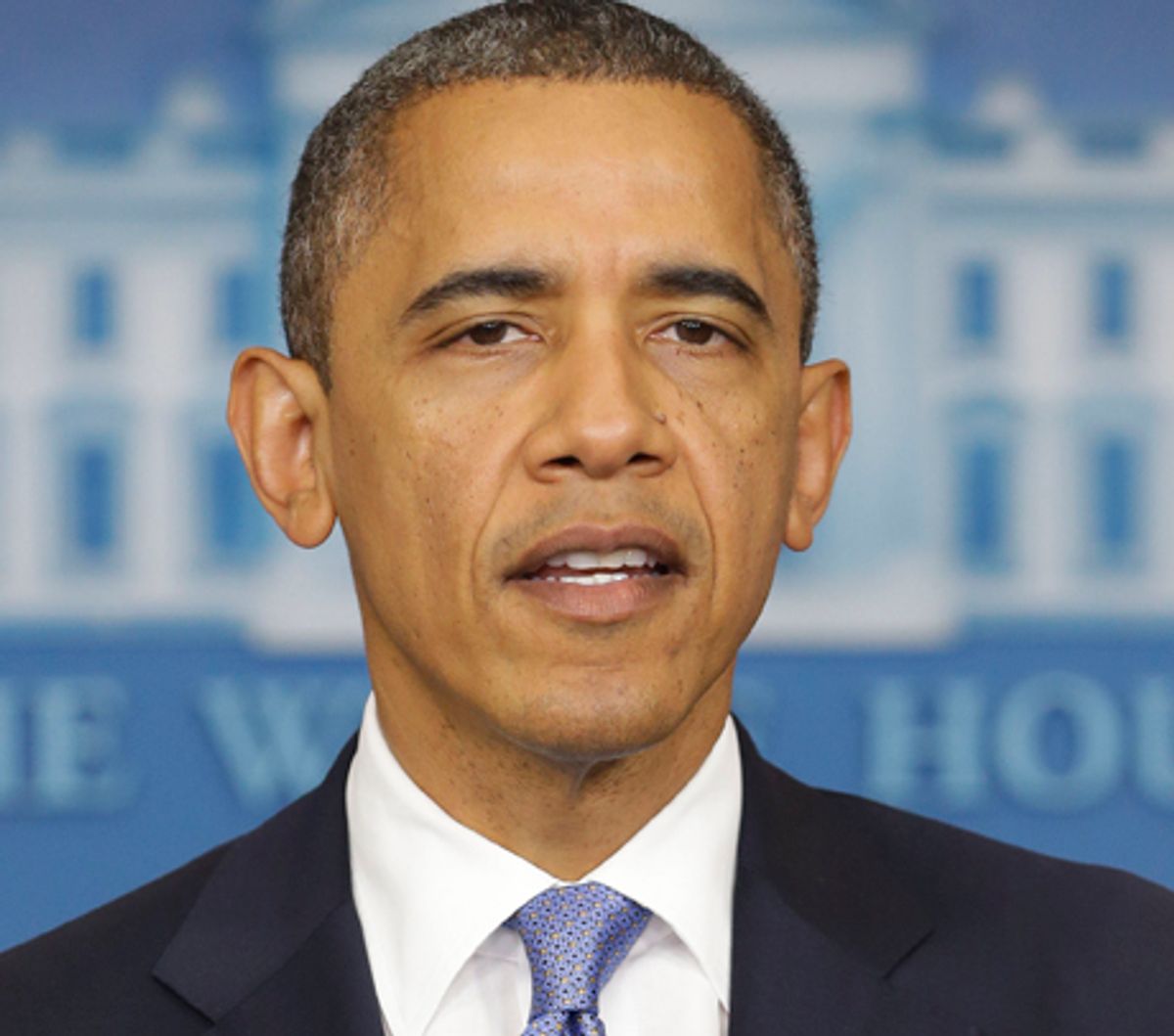 If you want a sense of how remarkable Barack Obama’s re-election victory is, think back to last summer. At the time, the president was struggling to reach a deal with House Republicans, who were threatening not to raise the debt ceiling and plunge the economy into a second recession. Unemployment was high—9.2 percent—Obama’s approval had dipped to the low 40s, and to anyone paying attention, the first African American president looked like a one-term failure.
If you want a sense of how remarkable Barack Obama’s re-election victory is, think back to last summer. At the time, the president was struggling to reach a deal with House Republicans, who were threatening not to raise the debt ceiling and plunge the economy into a second recession. Unemployment was high—9.2 percent—Obama’s approval had dipped to the low 40s, and to anyone paying attention, the first African American president looked like a one-term failure.
But beginning in the fall, Obama began to reassert himself. With the American Jobs Act, he outlined a viable plan for generating economic growth and kick-starting the recovery. With his widely praised speech in Kansas, he outlined a populist agenda of greater investment and higher taxes on the wealthiest Americans. Over the course of 2012, he built good will with important communities, from LGBT Americans with an endorsement of same-sex marriage to Latino immigrants and their families with a measure meant to emulate the DREAM Act. What’s more, the economy began to pick up: Job growth increased, unemployment dropped, and the overall economic picture began to brighten.
Together with one of the most hard-nosed campaigns in recent memory, Obama managed to bounce back from the nadir of 2011 to one of the broadest re-election victories in recent memory. At this point, news networks have called New Hampshire, Iowa, Wisconsin, Colorado, Nevada, Virginia, and Ohio for President Obama. Only Florida has yet to be called, where the remaining votes are in traditionally Democratic areas of the state. Compared with 2008, Obama lost only two states: North Carolina and Indiana. When all is said and done, Barack Obama will have won re-election with 332 electoral votes—a much larger margin than the last president to win re-election, George W. Bush
Over the next week, I’ll write about the details of Obama’s victory, in particular his huge advantage with nonwhite voters—without historic margins (and turnout) among African Americans, Latinos, and Asian Americans, it’s likely Obama would have failed in his quest for a second term. Indeed, it should be said that Republicans have themselves to blame for a good deal of this. If not for their categorical opposition to health-care reform, the Affordable Care Act would have never been passed in its current form. If not for their harsh approach to immigration, they might have won greater Latino support over the last four years. If not for their embrace of misogyny, they might have closed the gender gap. If not for their willingness to indulge the worst conspiracies about Obama, they might have made inroads with young people and college-educated voters.
In the meantime, it’s worth noting what Obama’s victory means for the next four years of public policy.
Obamacare will be implemented in full, and the United States will begin its journey toward universal health-care coverage. Millions of Americans will be covered by the bill’s Medicaid expansion, and millions more will—for the first time—have access to affordable health insurance. Likewise, Dodd-Frank will survive, and the federal government will begin to craft regulations that will—with any luck—prevent a repeat of the 2008 financial collapse. Obama’s re-election shields core liberal commitments—on social insurance, anti-poverty policy, and environmental regulation—from conservative assault, and gives Democrats a chance to reshape the Supreme Court and the federal judiciary writ large.
In other words, with tonight’s results, liberals have four years to cement a host of policies and achievements that could prove as transformative as the Great Society or even the New Deal. And this is on top of an economic recovery that will almost certainly boost Democrats' standing with the public.
It’s still far too early to make a judgment about Barack Obama’s overall historical standing. But by virtue of winning re-election, he has become the most successful Democratic president since Lyndon Johnson, and one of the most successful of the 21st century.
Not bad for the skinny Hawaiian kid with a funny name.



Shares